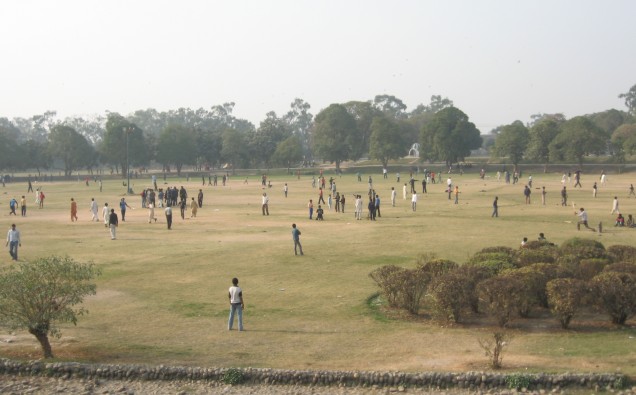
After a one-year lull, terrorists struck Lahore, killing 71 citizens in a packed recreational park, with children and women being majority of victims.
The attack took place on the occasion of Easter and injured more than 200 others in Gulshan-e- Iqbal, which was filled with Christian and Muslim families.
According to security officials, the carnage was carried out by the Tehreek-e-Taliban Pakistan (TTP), who earlier targeted children in Army Public School Peshawar on December 16, 2016 and students the Bacha Khan University in Khyber Pakhtunkhawa.
Later, TTP Jamaatul Ahrar faction claimed responsibility for the attack. Omar Khalid Khorasani is believed to be hiding in Afghanistan.
The United States condemned the “appalling” terrorist attack.
“The United States stands with the people and Government of Pakistan at this difficult hour. We send our deepest condolences to the loved ones of those killed and injured, and our thoughts and prayers are with the people of Lahore as they respond to and recover from this terrible tragedy,” State Department Spokesperson John Kirby said in a statement.
“Attacks like these only deepen our shared resolve to defeat terrorism around the world, and we will continue to work with our partners in Pakistan and across the region to combat the threat of terrorism,” the statement added.
Pakistani-American community leaders expressed a deep sense of sorrow and grief over the loss of lives.
The last time terrorists struck in Punjab capital in the heart of Pakistan was a year ago, when a suicide attack outside Gaddafi Stadium during a cricket match played between Pakistan and Zimbabwe, apparently in a bid to keep international cricket away from this part of the world.
On March 21 last year, twin blasts outside churches in Christian neighborhood Youhannabad had resulted in the killing of some 20 citizens.
Pakistan has been fighting the TTP insurgency since 2007 and in the last couple of years has carried out a major “Zarb-e-Azb” operation to cleanse its tribal areas along the Afghan border of the militants. Pakistani and US officials say the operation has achieved remarkable success in eliminating terrorist sanctuaries including Afghan militants.
Some TTP militant leaders like Mullah Fazlullah have taken refuge in Afghanistan, where they plan attacks against Pakistani security and citizens.
But Sunday’s attack came as a painful reminder that Islamabad has still much work to do in order to get rid of militant networks operating on its soil.
Meanwhile, Prime Minister Nawaz Sharif, who was scheduled to traveled to London ahead of a visit to Washington, has postponed his visit to Britain.
The Nawaz Sharif Administration faced another crisis in Islamabad as thousands of far right protestors stormed into Islamabad in reaction to hanging of Mumtaz Qadri, the killer of former Governor of Punjab, Salman Taseer, accusing him of committing blasphemy. Around 30,000 protestors broke the barriers on Islamabad’s roads to reach outside the Parliament House and late into night the crowd was thinning into a few thousand.
The government called in Army to deal with the situation in the high security area, and Prime Minister Sharif and Army Chief Gen Raheel Sharif held separate meetings after the Lahore attack and Islamabad protests.
Meanwhile, Indian Prime Minister Narendra Modi telephoned Nawaz Sharif to condole the loss of lives in Lahore, the cultural hub of the country and hometown of the Pakistani prime minister and his brother Shahbaz Sharif who rules the largest Punjab province as chief minister.
The attack rocked Lahore just a few days after Pakistan announced the arrest of Indian spy Kul Bhushan Yadev who was recently arrested from Balochistan. New Delhi has confirmed Yadev was a former Navy officer but denied that he belongs to Indian intelligence agency Research and Analysis Wing (RAW).
According to Dawn Pakistani newspaper officials say Yadev was training Baloch insurgents to attack Pakistani ports, and entered Pakistan from the Iranian border. He has a valid Iranian visa on his passport. Islamabad accuses India of fomenting insurgency in Balochistan, a southwestern province bordering Iran and Afghanistan.
Pakistan has lost some 60,000 citizens and security personnel to terrorist bombings since it became a partner in the fight against terror after 9/11 terrorist attacks on the United States.














